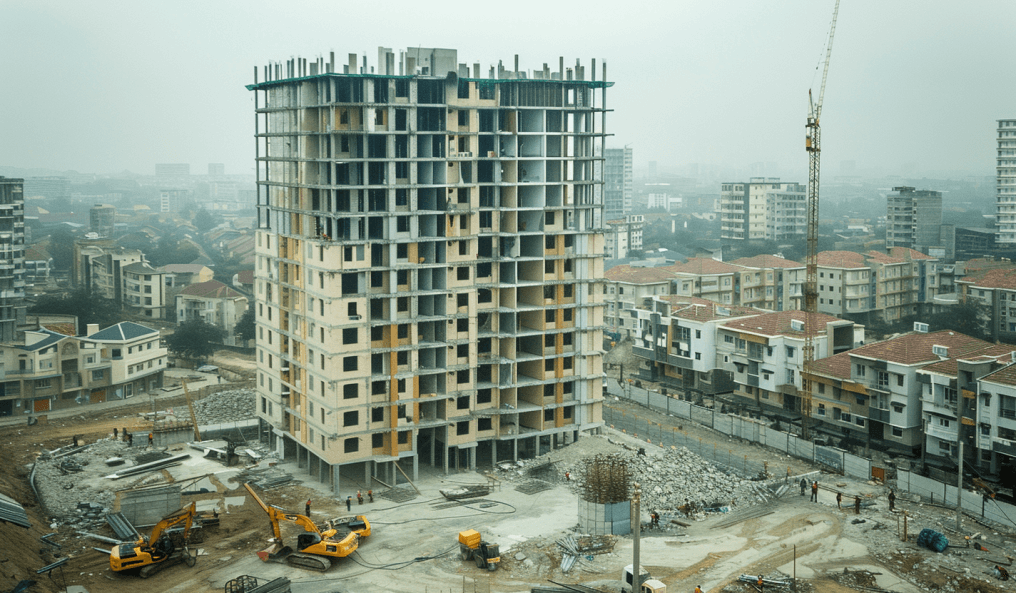- Kenya’s real estate market underwent a notable boom from the mid to late 2000s.
- Kenya experienced a remarkable rise in per capita income, climbing from around $890 in 2005 to approximately $1,160 in 2010.
- The real estate industry significantly contributes to Kenya’s GDP growth, employment generation, and infrastructure development, constituting to over 60% of the country’s total wealth.
- According to a research conducted by Statista, the real estate market in Kenya is projected to reach a value of KES US$697.80 billion by 2024.
The real estate market in Kenya underwent a notable boom from the mid to late 2000s. This was closely tied to the country’s economic trajectory. More often than not, economic prosperity spurs real estate growth, as increased financial stability prompts heightened investment interest.
In the mid to late 2000s for example, Kenya experienced a remarkable rise in per capita income, climbing from around $890 in 2005 to approximately $1,160 in 2010, keeping in mind that the dollar exchange rate was between 67 shillings to 78 shillings, a clear indication of a healthy and thriving economy.
This surge in prosperity ignited a fervent demand for housing and investment opportunities, particularly in bustling urban centers like Nairobi and Mombasa. The growing middle class and improved access to credit further fueled the real estate boom, with both residential and commercial properties in high demand.
Government policies and incentives aimed at boosting real estate investment also played a pivotal role in this expansion. The construction sector flourished, generating employment and stimulating economic activity across the country. This era of economic growth, combined with increasing urbanization and favourable investment climate, set the stage for Kenya’s real estate surge.
READ ALSO: Real Estate Trends: What to Anticipate in 2023
Table of Contents
Why Real Estate Matters: The Key Role of Property in Kenya’s Economy
The real estate industry plays a pivotal role in Kenya’s economy, significantly contributing to GDP growth, employment generation, and infrastructure development. Estimates suggest that real estate assets constitute over 60% of the country’s total wealth, highlighting its substantial impact on national prosperity.
Additionally, the industry drives economic activity by attracting significant investments from domestic and foreign sources. The construction and development of residential, commercial, and industrial properties for example, have created employment opportunities for a large segment of the population, including skilled and unskilled labor. Some sectors such as banking, manufacturing (cement, steel), and services (architecture, legal), have also experienced a stimulation, which has fostered economic growth and diversification.

The growth of the real estate market has continued to reflect urbanization and modernization trends, with cities like Nairobi and Mombasa expanding rapidly to accommodate population growth and changing lifestyle demands. Overall, the industry has and continues to play a crucial role in Kenya’s economic landscape, facilitating wealth creation, employment, and infrastructural development.
Exploring the Pulse of Kenya’s Real Estate
As earlier seen, Kenya’s real estate sector is on an upward trajectory and it continues to experience substantial growth, with a surge in investments. According to a research conducted by Statista, the real estate market in Kenya is projected to reach a value of KES US$697.80 billion by 2024, with the residential segment dominating the market at an estimated volume of KES US$618.80 billion in the same year.
Furthermore, it is anticipated that the market will maintain an annual growth rate of 3.84% from 2024 to 2028 (CAGR 2024-2028), culminating in a market volume of KES US$811.40 billion by 2028. This is a clear indication of the surge the market is experiencing as a result of rapid urbanization.
Conclusion
While the real estate market offers promising opportunities, it also faces inevitable challenges driven by economic unpredictability and evolving consumer behaviours, underscoring the dynamic nature of the industry. To stay ahead of the curve, industry professionals must adapt to current trends, leveraging transformative tools like Artificial Intelligence (AI).
READ ALSO: BuyRentKenya Showcases Innovations in Real Estate Technology at EAPI Summit
AI enhances property searches by analysing vast datasets, predicting market trends, and personalising recommendations for buyers and renters. This technology streamlines processes, improves efficiency, and offers valuable insights that empower professionals to make informed decisions in a rapidly changing market landscape. Embracing AI is key to navigating the complexities of real estate and optimising outcomes in an evolving industry environment.



